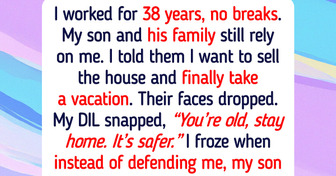What I take away from your letter is that you've got a history of financial giving with those 2 family members. So what I don't get is why, with that being a foundation of your past with them they would both react to your needs in that negative harsh way. There is a large missing piece of the story between you all that undermines any ability to give meaningful feedback
I Begged My Family to Help With My Medical Bills—Their Response Left Me Stunned
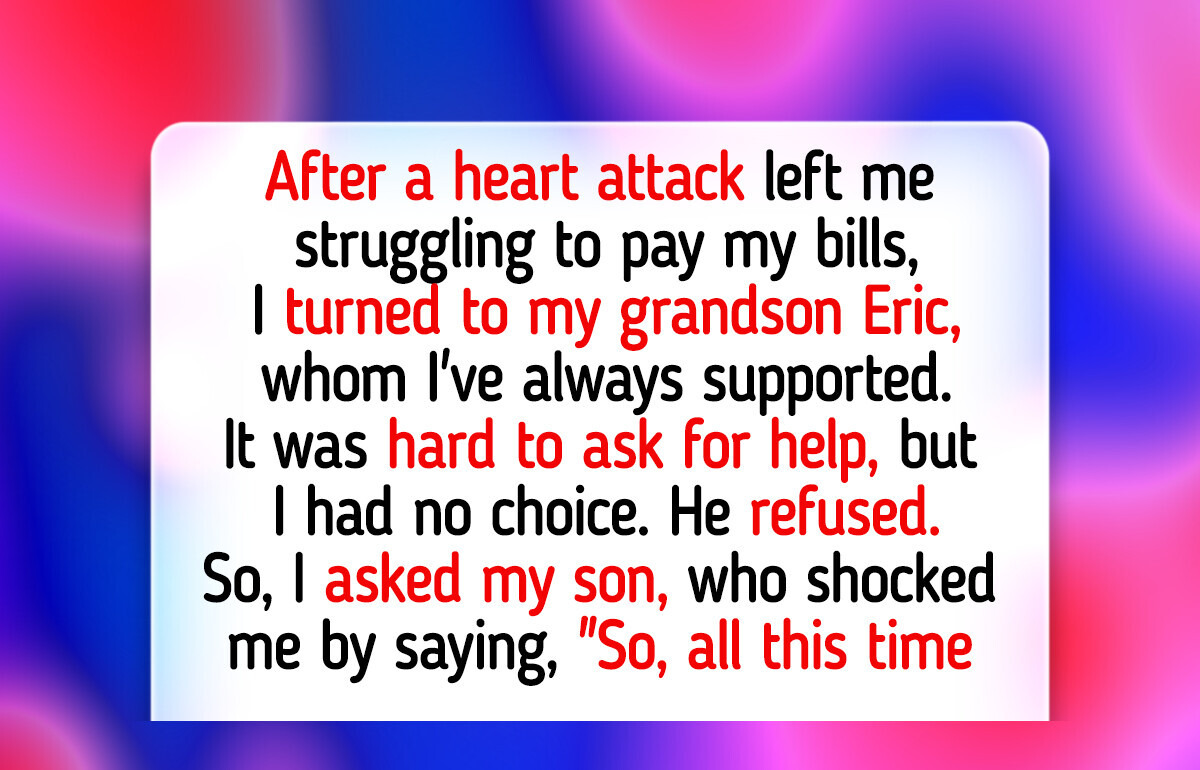
After a heart attack left 70-year-old Jonathan facing steep medical bills, he turned to the people he loves most for support. What followed left him questioning his past choices, his family bonds, and where to turn next.
Dear Bright Side,
I’m seventy years old, and about six months ago, I had a heart attack. Physically, I’ve been lucky enough to recover more than I thought I would, but the bills keep coming in, and they’re more than I can manage on my fixed income.
I thought maybe my family would understand. I asked my grandson, Eric, if he could help out a little. He’s young, doing well for himself, and I thought he might be willing. But he said no, flat out. I tried not to take it too hard. Maybe he’s got things going on I don’t know about.
So, I turned to my son, Duncan. I’ll be honest, I thought for sure he would come through. Instead, he got angry with me. He told me that the only reason I ever supported him and Eric all these years was so I could demand they pay me back now that I’m old.
“All those years of ‘support’ were just your investment plan, weren’t they?” he said. I don’t recognize that version of myself that he described. I thought being a father meant doing whatever you could to help your children stand on their own two feet. That’s what I tried to do.
Now I sit here wondering where I went wrong. Did I give too much? Not enough? Did I teach them that family is disposable when it gets hard? I raised Duncan with the idea that we look out for one another, no matter what. But when I needed help, what I got back was anger.
I don’t want to guilt my family into anything. I don’t want to be a burden. But at the same time, I don’t know how to carry this load by myself. The medical bills are real, and so is the loneliness I feel when I think about how things turned out with my son and grandson.
I’m writing to you because I don’t know what to do next. How do I find peace in this situation? How do I move forward when my own family feels so far away? Any advice would mean the world to me.
With respect,
Jonathan
Jonathan’s story shows the heartbreak of giving so much to family, only to feel abandoned when he needed them most. After his heart attack and mounting bills, he’s left questioning love, loyalty, and where he went wrong. Here’s some advice for him to consider.
Arrange a realistic payment plan.
Jonathan, one step you can take is to ask your hospital if they offer financial assistance or charity care. Many hospitals have programs for people on limited incomes, even if they don’t advertise them. If that’s not available, request a detailed, itemized bill and check carefully for mistakes. Errors are more common than you’d expect.
If the bill is correct, try speaking directly with the billing office to negotiate a lower amount or request a manageable payment plan. Persistence is key. Sometimes it takes multiple conversations before solutions appear.
Past support was love, not a transaction.

Duncan showed you who he is, believe him. Wish you a speedy recovery & financial stability. 🙏❤️
It’s devastating that medical bills weigh so heavily after your heart attack, but it’s important to remember you are not a burden or a “debt” to be repaid by your family. Their refusal doesn’t erase the care and love you gave, nor does it mean you’ve failed. What it does mean is that you need to find a path forward that doesn’t depend on them.
Medical costs can often be reduced, renegotiated, or managed through structured payment plans. Hospitals would rather receive steady payments than nothing at all. Focus on exploring these options so that the stress of bills doesn’t take more from you than your illness already has.
Knowing your rights provides more options.
One important step may be to learn about the laws where you live. In many countries and regions, adult children have a legal duty to support elderly parents who are struggling financially or medically. Sometimes this responsibility can even be enforced in court.
It may feel painful to think of taking that route with your son, but knowing your rights is important. If such laws apply in your area, they could give you another path to ease your burden while you continue searching for practical solutions to your bills.
Jonathan’s struggle reminds us how complex family and money can be, especially when love and responsibility collide. For more real-life dilemmas around medical costs and family ties, you can read this story.
Comments
So, you raised your son with the PLAN TO HAVE A HEART ATTACK AND ASK HIM FOR MONEY? I guess when HIS SON DOES THAT TO HIM it will be your fault too? I don't know what your exact request of him was, but I am pretty sure whatever it was is a lot less than you did for your son. Nowhere does it say that you told him "I sacrificed everything for you, it's time you paid me back". I am truly sorry that you are going through this. I don't know where you live but I do know that it is possible to find assistance with medical costs through several organizations. You would have to look at the ones available in your area. Sometimes you can find the names of those places at your/a church or church group. I don't think your son can see the forest for the trees, but I suspect that he will when it happens to him, and will come crying to you about it. I hear younger people complain about us "Baby Boomers" and I certainly don't think they should be held responsible for our mistakes, this is not a mistake however, it is real life and in those cases, it really is family helps family. Even if it's just buying you groceries or a tank of gas occasionally. They never learn until it's too late.
Related Reads
I Knew My Son Was Ashamed of My Job—but His Next Move Hurt Me Deeply

12 True Stories That Show the Power of Kindness
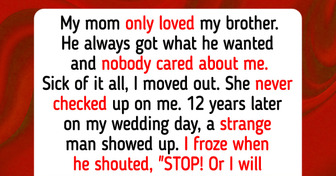
11 MILs Who Stepped Up When Families Needed Them Most

12 Stories That Show the Bravest Thing You Can Do Is to Be Kind
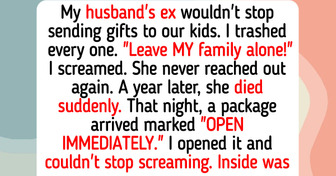
18 Bosses Who Made Their Employees Question Reality
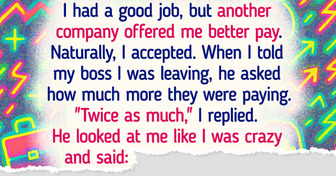
My Stepson Excluded Me From His Graduation—My Wife’s Reaction Crushed Me

I Quit After My Boss Punished Me for Attending My Mom’s Surgery
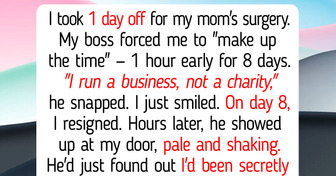
12 Times Kindness Proved to Be the Most Powerful Force of All
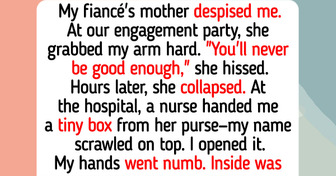
I Gave My MIL a Simple Gift—But My Family Demanded I “Choose a Side”

I Refuse to Let My Boss Control My Breastfeeding Breaks at Work
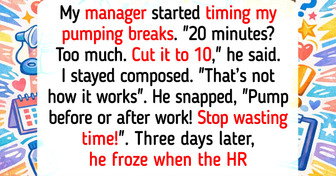
I Refuse to Let My Stepson Disrespect Me, His Arrogance Cost Him Big
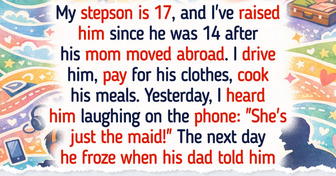
12 Stories That Show Small Moments of Kindness Can Still Change the World
